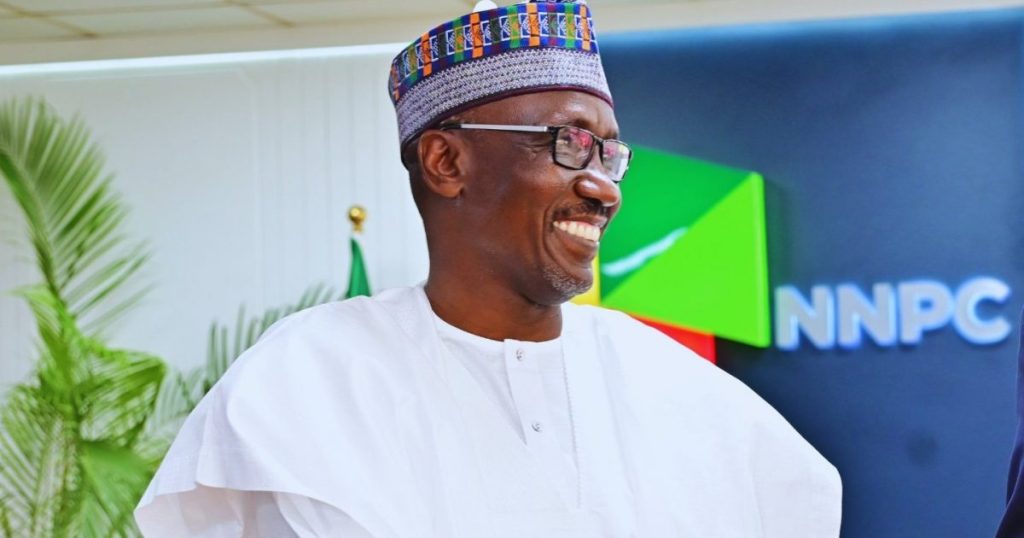The Nigerian public’s outcry for accountability regarding alleged corruption within the Nigerian National Petroleum Company Limited (NNPCL) has reached a crescendo, culminating in assurances from the Attorney General of the Federation and Minister of Justice, Lateef Fagbemi (SAN), that a thorough investigation into the dealings of former Group Chief Executive Officer, Mele Kyari, will be conducted. This commitment comes on the heels of escalating protests outside the Ministry of Justice headquarters in Abuja, where concerned citizens and legal professionals alike have voiced their demands for transparency and justice. The ministry, through Deputy Director Winifred Adekunle, has formally acknowledged receipt of petitions detailing the alleged financial irregularities and pledged a prompt and appropriate response to the concerns raised. This public commitment signifies a critical step towards addressing the pervasive allegations of corruption that have dogged Kyari’s tenure and the NNPCL’s operations.
The protests, staged by both civil society groups and legal professionals, underscore the deep-seated public mistrust surrounding the management of Nigeria’s vital oil resources. Concerned Citizens Against Corruption initiated the demonstrations, demanding a comprehensive investigation into Kyari’s financial dealings. This was followed by a more targeted protest led by the Guardians of Democracy and Rule of Law, a coalition of lawyers who submitted a detailed petition outlining specific allegations against Kyari. Their concerns revolve around what they perceive as a lack of transparency and accountability in the NNPCL’s operations, particularly concerning the rehabilitation of government-owned refineries and questionable financial transactions with private entities. The converging voices of these diverse groups amplify the urgency and seriousness of the allegations, placing significant pressure on the government to act decisively.
The crux of the allegations against Kyari centers on the alleged mismanagement of funds allocated for the rehabilitation of Nigeria’s ailing refineries. The petition submitted by the Guardians of Democracy and Rule of Law highlights discrepancies in reported expenditures and questions the efficacy of the investments made. One particularly contentious point is the involvement of Matrix Energy Limited, which reportedly invested $400 million in the Port Harcourt Refinery despite a prior Federal Executive Council approval of $1.5 billion for the same project. This discrepancy raises questions about the propriety of the transaction and the potential for misappropriation of funds. Further fueling suspicion is the reported $2 billion debt owed by the NNPCL to Matrix Energy, purportedly being serviced through daily crude oil allocations of 80,000 barrels. This arrangement has raised eyebrows, with critics questioning the rationale behind such a debt and the opaque nature of the agreement.
The petition also emphasizes the lack of transparency surrounding these financial transactions. The lawyers representing the Guardians of Democracy and Rule of Law have demanded clarity on several crucial aspects, including the rationale behind the NNPCL’s indebtedness to Matrix Energy, the justification for servicing the debt with crude oil, the identities of the individuals involved in negotiating these agreements, and the reasons for withholding this information from the public. This demand for transparency reflects a broader concern about the potential for corruption and cronyism within the NNPCL. The petitioners argue that a thorough and impartial investigation is essential not only to recover any misappropriated funds but also to hold those responsible accountable and deter future misconduct.
Beyond the specific allegations related to refinery rehabilitation and the dealings with Matrix Energy, the petition calls for a broader investigation into the NNPCL’s financial dealings under Kyari’s leadership. The lawyers have urged the Attorney General to review all agreements entered into during Kyari’s tenure, conduct a fact-finding probe to quantify the financial losses incurred, and recommend concrete steps for recovery. They have also requested the establishment of a commission of inquiry to examine the NNPCL’s handling of refinery rehabilitation projects under Kyari and the sacked board. These comprehensive measures, they argue, are necessary to restore public trust and ensure that the NNPCL operates with transparency and accountability.
The Attorney General’s assurance of an investigation represents a significant step towards addressing these concerns. The public now awaits concrete action to follow these pronouncements. The investigation’s scope, thoroughness, and impartiality will be closely scrutinized. A credible investigation must not only uncover any wrongdoing but also implement measures to prevent the recurrence of such alleged financial mismanagement in the future. The outcome of this process will be a crucial test of the government’s commitment to transparency and accountability in the management of Nigeria’s oil resources. The Nigerian public, particularly the protesting groups, have made their demands clear, and the pressure remains on the government to deliver on its promises of a thorough and transparent investigation.














